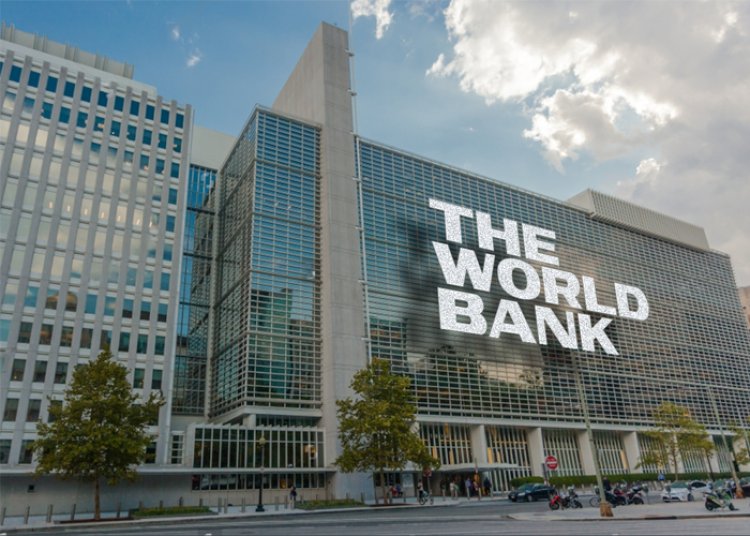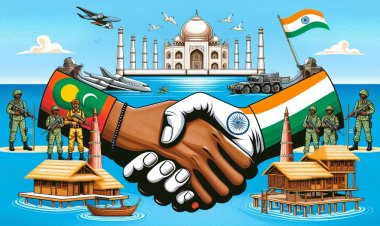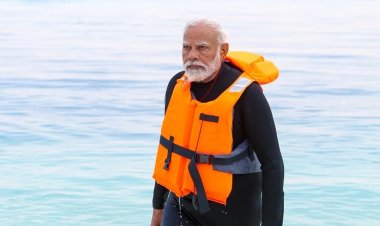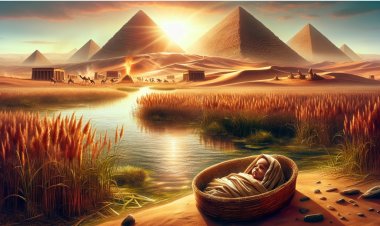The world of the world bank
Explore the operations of the World Bank with our insightful blog. Uncover its impact on global economies, development projects, and more.

The world of the world bank
The world bank
The World Bank aims to reduce poverty and boost economic growth. The 1944-founded World Bank comprises the International Bank for Reconstruction and Development (IBRD) and the International Development Association (IDA). (IDA). The World Bank provides loans and technical assistance for public works and other social projects in developing nations to help them grow.
Almost 120 nations employ 12,000 World Bank employees. The World Bank stressed sustainable development, which prioritizes environmental protection and social advancement, in the late 2000s.
The World Bank has helped expand the global economy and reduce poverty in many developing nations. The World Bank has lifted millions out of poverty and made the world a better, more equitable place.
World Bank Mission
The World Bank promotes global economic and social advancement through loans, assistance, and other resources. The organization reduces global poverty by promoting economic growth, supporting infrastructure, and improving living standards in low and middle-income nations.
The agency develops strategies and initiatives with regional governments and others to eliminate poverty and boost economic growth.
The Bretton Woods Conference inspired the 1944 founding of the World Bank to reconstruct Europe. As the economy shifted, the organization focused on emerging nations to offer financial and technical help to expanding economies. The World Bank now addresses climate change, conflict resolution, and pandemic preparedness. The organization still promotes sustainable and inclusive growth in developing countries to reduce poverty.
World Bank History
The World Bank was founded in 1944 to help developing nations improve their economies, eradicate poverty, and secure their futures. The World Bank is a major development funder. It has 189 member nations and is situated in Washington, DC.
The World Bank was founded after WWII. In 1944, 44 nations convened in Bretton Woods, New Hampshire, to create a post-war worldwide monetary system. The US became the world's leading economy after the war. It led to system implementation. The Bretton Woods summit created the IMF and World Bank. In July 1944, the World Bank was founded with the Articles of Agreement.
It started with reconstructing Europe after the war. . Nowadays, the World Bank supports education, health care, sustainable development, and poor nations with technical assistance. Due to its various projects, the World Bank has become a vital participant in global economic growth and poverty reduction.
World Bank Structure
Poor nations get loans and subsidies from the World Bank. It aims to end global poverty and boost the economy. IBRD and IDA make up the organization (IDA).
World Bank's finance arm is IBRD. It has existed since 1944. The 189-country IBRD lends, advises, and funds low- and middle-income nations. It considers economic growth, social improvement, and environmental sustainability. It lends to the poorest nations, who are ineligible for IBRD funds.
The World Bank has various groups that assist nations to expand their economy, eliminate poverty, and stay financially secure, including the IBRD and IDA. The Board of Directors, composed of representatives from member nations, develops strategic plans and manages the organization. Hence, the World Bank is a cooperative institution that promotes economic stability and eliminates poverty.
World Bank Role in Global Economy
The World Bank provides money and other resources to developing nations. World Bank was founded in 1944. 189 nations are members of the Washington-based organization. It provides low-interest loans, grants, and credit for education, health, infrastructure, and agriculture. The bank's principal mission is to assist developing nations to improve their economies for everyone.
Its loan initiatives fund infrastructure, education, health care, and other vital services in developing nations, which boosts their economies. The World Bank supports economic growth, poverty reduction, and long-term development strategies alongside governments. Hence, the World Bank influences global economic policy.
The World Bank influences the global economy beyond giving money and advocating policies. Its economic assessments are used by policymakers, economists, and scholars worldwide. The bank's research and information assist explain how globalization, trade policy, and climate change influence the economy. The World Bank's research shapes global economic policy discussions.
The World Bank has several economic functions. The bank affects developing nations' economies and global economic policy.
Functions of the World Bank
Via financing, guidance, and technical assistance, it improves member nations' economies. A Board of Governors governs the World Bank's member countries. Bonds and loans fund the World Bank. The World Bank funds infrastructure and economic development in poor nations.
The World Bank lends money to nations to fight poverty, hunger, and illness. The World Bank advises its member countries on policy changes, government reform, and skill development.
The World Bank also helps its members expand sustainably. The Bank funds programs that reduce greenhouse gas emissions, make clean and renewable energy more accessible, and prevent environmental harm. The Bank supports social inclusion and gender equality. It funds programs that empower women, alleviate inequality, and advance society. The World Bank is crucial because it supports sustainable development, helps member nations expand, and addresses global issues like poverty, climate change, and inequality.
World Bank Growth Initiatives
The World Bank is a major post-World War II international organization. It aids developing nations financially and technically to improve their economies and societies. Low-interest loans, grants, and financial assistance from the World Bank help member nations reduce poverty, strengthen economies, and promote sustainable development. This is a key World Bank activity.
The World Bank shapes global growth. Technical assistance from the organization helps developing nations flourish economically and socially. The World Bank has been funding African countries to eradicate poverty, improve education and health, and create infrastructure like clean water, sanitation, and power.
The World Bank collaborates with governments, international organizations, and civil society to develop the globe. The organization may promote excellent economic policies, governance, and human rights by partnering with other organizations. For instance, the World Bank has been working with the UNDP, the IMF, and other leading organizations to create a space where individuals from across the world may discuss development concerns.
The World Bank improves all nations. The World Bank lends developing nations money, technical assistance, and advice to stabilize their economies. The World Bank collaborates with several organizations to achieve economic growth, social development, and gender equality. So, the World Bank's development work is crucial.
Developing nations receive financing and technical assistance.
The World Bank has historically loaned and assisted developing nations. These grants aid underdeveloped nations. Developing nations frequently lack the money, technical knowledge, and infrastructure to enhance their economy and education. The World Bank gives these nations money and technical assistance.
The money builds roads, bridges, and schools in developing nations. Some countries also borrow to expand and stabilize. These grants assist nations to achieve their development goals and become self-sufficient, which reduces poverty.
The World Bank lends to developing nations and provides other assistance. Technical aid helps tackle urgent and complex development issues. This improves government budgets, human capital investment, and private sector growth. It strengthens institutions and governments, promotes social progress, and preserves the environment. These factors assist emerging nations to strengthen their economies and societies and improve their futures.
The World Bank has numerous critics.
The organization funds and aids development projects, particularly in poor nations. These programs' efficacy and the Bank's rules and practices have been criticized.
The World Bank's development programs often ignore local needs and priorities, which is a major concern. Opponents argue the Bank prioritizes large infrastructure projects and macroeconomic strategies above community needs. Others also say the Bank's reliance on free-market policies and privatization worsens poverty and inequality.
The World Bank is also in the spotlight for pushing environmentally unsustainable development. The Bank also funds projects that evict people and damage cultural heritage sites.
The World Bank's governance and accountability have been scrutinized in recent years. Local communities and civil society groups want more engagement in the Bank's activities and more transparency and accountability.
The World Bank has been criticized and discussed many times. Criticisms include its development initiatives, environmental policies, and administration. As people realize how urgently global poverty and inequality must be addressed, they are pushing for the Bank to transform and be more accountable.
The World Bank's Impact on Developing Countries
The World Bank focuses on developing nations. Economic growth and poverty reduction programs in emerging nations have received bank funding. The World Bank's loan has improved poor people's lives.
The World Bank's development lending is outstanding. The bank grants these nations money and technical assistance. This has enabled government initiatives, which have improved roads, hospitals, jobs, and business. . . Stability and peace aid emerging countries.
Yet, the World Bank has had mixed results. Opponents say many of the bank's loans to poor nations didn't address poverty. In corrupt nations, loans have funded massive infrastructure projects. Elites get greater governmental resources without benefiting the poor. Notwithstanding these accusations, the bank has focused much of its recent lending on governance and corruption.
The World Bank has helped developing nations. It lifted millions from poverty and boosted emerging nations' economies. The bank's lending has improved developing nations' infrastructure, education, and health care, boosting productivity, economic development, and quality of life. To avoid corruption and misappropriation, the bank and other large lenders must be vigilant with their money.
World Bank Poverty Reduction Success
The World Bank is a major financial institution that fights poverty and promotes global economic prosperity. Eliminating poverty is its greatest achievement. Since 1944, the bank has helped developing nations battle poverty through loans, grants, and technical assistance. The World Bank has helped millions of people escape poverty in recent decades.
The World Bank's poverty-fighting results demonstrate its efforts. The Millennium Development Goals have helped the bank eliminate poverty in many developing nations. The World Bank funded schools, roads, and rural electrification projects in Ghana to reduce poverty. These initiatives provide jobs, education, energy, and clean water. The World Bank has reduced infant and maternal mortality by funding health programs in various countries.
Technology and innovation have helped the World Bank empower people and alleviate poverty. Mobile money is crucial. The World Bank and Safaricom established Kenya's M-Pesa, the first mobile money transfer service. This program gave millions of Kenyans financial services and improved their lives. The World Bank's 2011 "Connect4Climate" program has brought together people, organizations, and governments from around the world to fight climate change and poverty through energy-related projects.
The World Bank's accomplishment in eradicating poverty has benefited millions worldwide. The World Bank's funding, initiatives, and technology have reduced poverty in emerging nations. Yet, the struggle against poverty continues, and the World Bank must find innovative methods to support more people.
World Bank Initiatives Promote Sustainability
The World Bank's various projects improve the planet. These initiatives assist developing nations to address their most pressing economic and environmental issues.
Clean energy is a top World Bank priority. In recent years, the bank has invested billions to assist nations to move to cleaner and more sustainable energy. Solar, wind, hydropower, and other renewable energy sources have been invested in. The World Bank promotes renewable energy to reduce fossil fuel pollution and construct sustainable energy infrastructure worldwide.
Several developing nations have improved their health and education systems using the bank's programs. To ensure communities have the resources they need and future generations may build a better world, these activities are crucial.
The World Bank is crucial to the global economy. The bank promotes sustainable development, reduces poverty, and improves the globe via its numerous projects. The World Bank champions renewable energy, basic services, and innovative payment methods to improve the globe. The bank's involvement in sustainable development will grow as environmental and economic issues worsen.
World Bank Approach Problems
The World Bank has been vital to the global economy for decades. The World Bank's policies and initiatives are notoriously difficult to implement in poor nations.
The World Bank is accused of "top-down" development. It develops policies and programs from the top, often without knowing local conditions or needs. The Bank's approach is often criticized for interfering with national sovereignty by imposing norms and standards on countries. This approach can also strain relations between the Bank and local communities, since residents may feel that development initiatives are being imposed on them.
Opponents further claim that the World Bank's methodology may not address poverty and inequality in emerging nations. Sadly, international leaders have ignored this security threat. Because it prioritizes economic growth and creates circumstances for it, critics argue the Bank doesn't do enough to address corruption, human rights violations, and income inequality. They suggest changing this strategy since it can keep countries in the same awful settings that made them impoverished.
The World Bank is lauded for helping poor nations improve their economy, but its methods have been challenged. The Bank's top-down policy may hinder emerging countries' self-sufficiency. Others contend that being purely anti-globalist undervalues a particular organization's beneficial contributions.
Critiques of the World Bank: An Overview
The World Bank is a vital institution. It has been criticized despite its many accomplishments. Notwithstanding their differences, these complaints share a concern about the Bank's policies, procedures, and impacts. This article discusses the World Bank's greatest issues.
The World Bank is criticized for prioritizing economic expansion over social and environmental problems. Economic expansion may harm human rights, the environment, and society. Opponents believe the Bank's policies often prioritize short-term outcomes above long-term sustainability. The Bank's severe lending and financial aid regulations have been criticized for causing economic and social instability in some nations.
The World Bank is often criticized for being undemocratic and closed. Opponents argue this lack of representation leads to policies that ignore local needs and goals and that the Bank doesn't listen to people's concerns. The Bank's lack of transparency and the public's limited engagement and oversight has also prompted concerns.
Critics argue the World Bank perpetuates global poverty and inequality. The Bank was created to assist impoverished nations to strengthen their economy, but others believe its policies have widened the divide between the affluent and poor. The Bank's lending and financial aid terms may worsen poverty and instability in some countries instead of addressing the root causes.
Many criticize the World Bank. . .
World Bank Accountability and Transparency
The World Bank's lack of transparency and accountability has been criticized as a global financial organization. The bank's governance structure and top-down decision-making are criticized. Because of this, the bank's global economic policy typically worsens and harms democratic principles. Opponents argue the bank needs major adjustments to fix these long-standing issues.
Decision-making is the World Bank's major transparency issue. Opponents argue the bank enables affluent countries to make most of the decisions while underdeveloped countries have little influence or representation. So, the bank's policies favor wealthy nations and destabilize the global economy. Transparency advocates believe the bank must overhaul its governance structure to ensure that everyone's voice is heard and that its policies better serve developing nations.
The World Bank's lack of transparency in spending and lending is another criticism. Opponents argue the bank's unclear and unaccountable programs contribute to corruption and poor management. The bank's purchasing practices favour big firms over small ones, increasing economic inequality. To sustain its operations and aid poor nations, the World Bank must be more transparent.
World Bank critics claim its lack of accountability harms its reputation. Many take it for granted that the bank can lend money and influence global economic policy, yet its actions have a worldwide impact. Opponents contend that without checks and balances, the bank can do anything it wants, leading to unaccountable and unsupervised practices. Accountability advocates believe the bank must be more transparent about its decision-making and accept responsibility for its actions to maintain its reputation in the global financial system.
Corruption and Interest Conflicts
The World Bank was founded in 1944 to support impoverished nations. The World Bank is accused of promoting corruption in poorer nations.
World Bank and subsidiary criticism are widespread. One is that the institution's loan encourages corruption in recipient countries. The country that receives the loan may act corruptly to fulfil the bank's policy criteria. Kickbacks and stealing money are examples of corruption here. Corruption may steal money from aid initiatives.
The World Bank's conflicts of interest also worry individuals. The bank relies on huge financial business experts and advisors. Opponents argue these consultants improperly influenced World Bank funding and lending to favour their businesses. The bank's investments have also caused disputes. The institution's tobacco investments are seen as counterproductive to its health and poverty aims.
The World Bank has shaped the global economy since its founding. Critics have raised concerns about corruption and conflicts of interest, which the bank must address if it wishes to tackle poverty. Due to the complexity of assistance recipient economies, the organization struggles to address these concerns.
World Bank Human Rights
The bank has been condemned worldwide despite its noble intentions. Human rights are a major criticism of the World Bank.
Human rights are universal and inalienable. The World Bank's detractors claim it has funded projects that violated these human rights. Critics say the bank has supported projects that caused poor people to move and lose access to basic services and a livelihood.
Opponents also worry about the World Bank's responsibility when its partners or client states violate human rights legislation. Governments, governmental organizations, and private corporations help the bank achieve its development goals. Several of these partners have been accused of torturing or murdering persons without a judicial order.
Human rights concerns drive World Bank criticism. Opponents argue the bank should be stronger about upholding basic human rights in its rules and initiatives. The bank must also be responsible for its partners' human rights breaches and ensure that its funding doesn't worsen or cause them.
Loans from the World Bank assist impoverished nations to grow. Its conditional loans are a drawback. Governments must implement austerity and free trade to get Bank loans. This method is supposed to encourage global capitalism and hurt the underprivileged economically and socially.
These issues have prompted World Bank alternatives. The 2016 AIIB is an alternative. China's AIIB, like the World Bank, helps developing nations finance infrastructure projects. Unlike the World Bank, the AIIB has no lending restrictions. It consults with borrowers to give them more project control.
The World Bank might also choose the NDB, formerly the BRICS Development Bank. Brazil, Russia, India, China, and South Africa, all rising economies, founded the NDB in 2015. Like the World Bank, it funds infrastructure and economic initiatives in poor nations. Yet, the NDB promotes "inclusive" development to balance economic growth by eliminating inequality within and between nations.
While the World Bank is being criticized, other development funding methods must be considered. AIIB and NDB loans emphasize dialogue, transparency, and flexibility. Some solutions have drawbacks, and additional study is needed to determine how effectively they achieve development goals.
To read more interesting articles CLICK HERE
Why do you need to be with TradeFxP? CLICK HERE
To join our Hunter AutoBot Trading Program CLICK HERE
All About TradeFxP's Hunter Ai EA Autobot CLICK HERE



 admin
admin 










